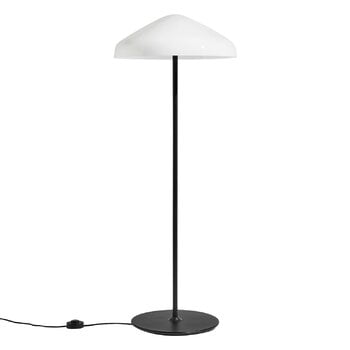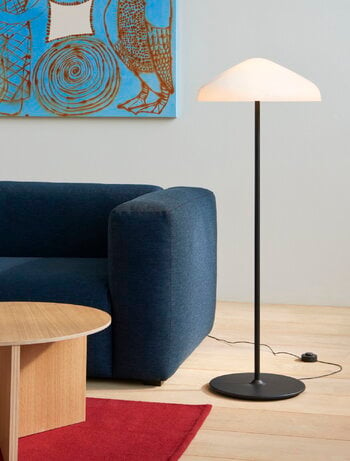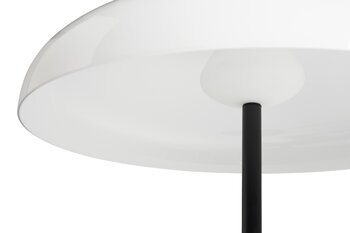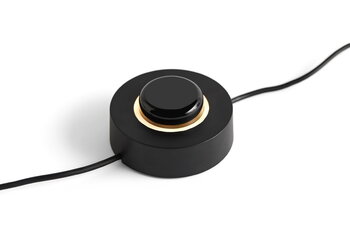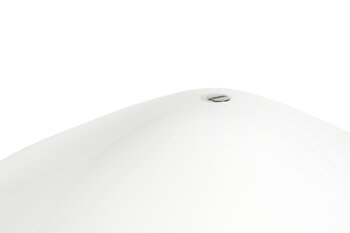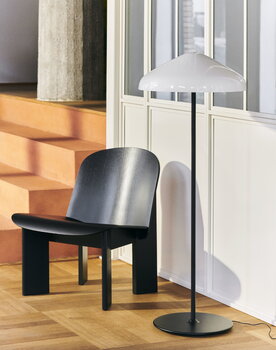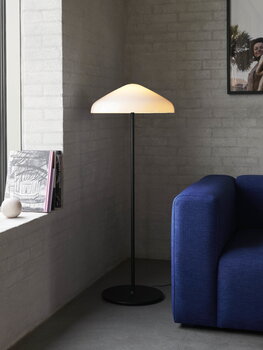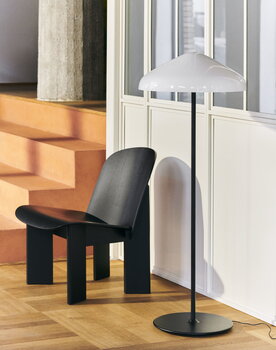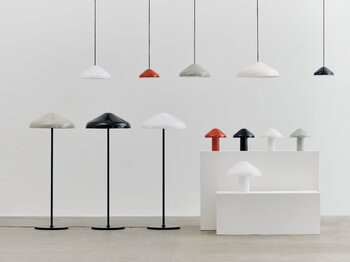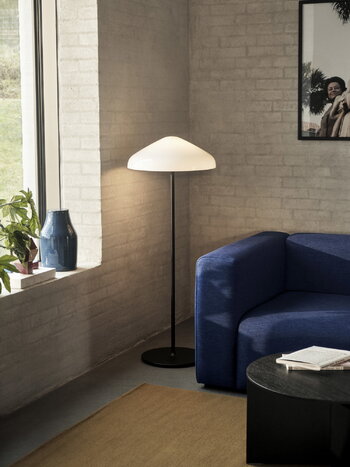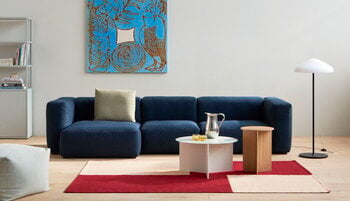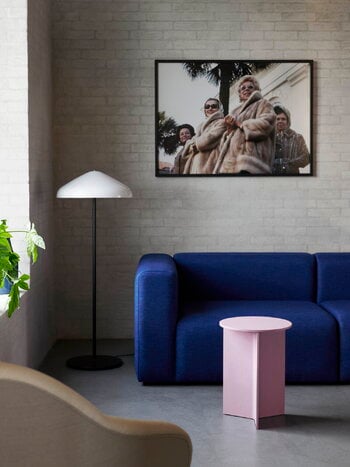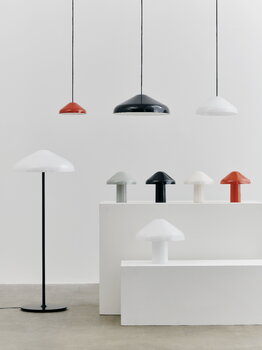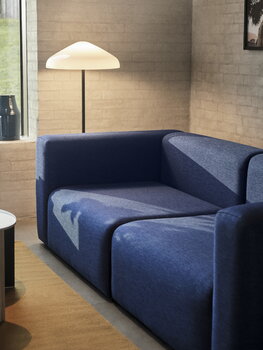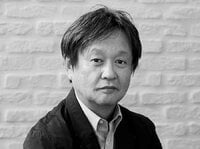HAY's Pao Glass floor lamp is a minimalist light fixture conceived by Japanese designer Naoto Fukasawa. Resembling a tent, the Pao lamp is named after Mongolian yurts, which in Japanese are called pao. When designing the lamp, Fukawasa thought of the yurts specifically at night, when they glow in the middle of the darkness, illuminated and inviting. He wanted the Pao luminaire to bring a similar warm glow and a pleasant atmosphere wherever it is suspended.
The shade of the Pao Glass is made of glass, as the luminaire's name implies. The floor lamp's clean-lined look is completed by simple and sleek, black steel leg. The Pao floor lamp illuminates without glare and is therefore ideal as a reading or target light in both home and public spaces.
